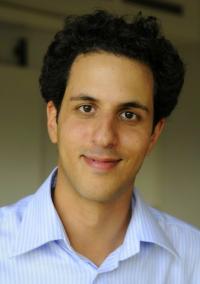05-MCM-TC Technical Ceramics
Representative Kurosch Rezwan
Introduction to characteristic properties of technical ceramics and their development, engineering, and utilization.
The ceramics lab consists of a series of experimental settings
experiment 1: Stability of ceramic suspensions and determination of particle sizes
experiment 2: Density measurements in porous materials
experiment 3: Resistance and ductility of ceramic materials
experiment 4: Flow characteristics of ceramic suspensions
experiment 5: Invesitgation of flow characteristics of ceramic injection molding and extrusion materials
Content of the Ceramic Nanotechnology Course:
Fundamentals of Colloid and Interface Science
Particle Interactions in Colloid Systems
Characterization of Nano- and Microparticles
Colloidal Dispersions
Rheology of Supensions
Adjusting Suspension Properties
Functional Ceramic Nanoparticles
Powder Synthesis and Conditioning
Shaping Ceramics I: Bulk Materials
Shaping Ceramics II: Foams
Shaping Ceramics III: Thin Films
Sol-Gel Technology: From Molecules to Advanced Ceramics
Selected Applications of Ceramic Nanotechnology / Summary
This is one of two elective modules with lectures generally presented in German and occasionally in English.
Students will be able to understand structure - property relationships of technical ceramics and their utilization.
Students will be able to perform specific experiments for the characterization of basic ceramical properties.
Students will be able to understand the processing, properties and characterization techniques of advanced ceramics fabricated from nano and micro particles.
No special knowledge required except the contents of module 05M-MCM-1-P5 Materials Science
Course Type 1: Exercise (E) 2.0 SWS ( 28.0 h)
Course Type 2: Lecture (L) 3.0 SWS ( 42.0 h)
Tutorial(s): -
Workload:70.0 h presence time
63.0 h self-study
47.0 h exam workload
180 h total workload
module exam
exam elements: 1
SL: 0
100 % oral exam
H. Schaumburg, Werkstoffe und Bauelemente der Elektronik, Band 5, Keramik, Stuttgart 1994; Kollenberg W., Technische Keramik, Vulkan-Verlag Essen (2004) ISBN 3-8027-2927-7 ; Hunter R. J., Introduction to Modern Colloid Science, Oxford Science, Oxford ISBN 0-19-855386-2
H.-D. Dörfler, Grenzflächen- und Kolloidchemie, Weinheim 1994; Ring T.A., Fundamentals of Ceramic Powder Processing and Synthesis, Academic Press, San Diego (1996) ISBN: 0-12-588930-5; Reed J.S., Principles of Ceramic Processing, Wiley and Sons, New York ISBN: 0-471-59721-X
W.-M- Kulicke, Fließverhalten von Stoffen und Stoffgemischen, Heidelberg 1986; Brinker C.J., Scherer G.W., Sol-Gel Science – The Physics and Chemistry of Sol-Gel Processing, Academic press, Inc. San Diego ISBN 0-12-134970-5; Jürgen G. Heinrich, Introduction to the Principles of Ceramic Forming
Thümmker, R. Oberacker, Introduction to Power Metallurgy, Cambridge 1993; Lagaly, Schulz, Zimehl, Dispersionen und Emulsionen, Steinkopff Verlag ISBN 3-7985-1087-3
Basic Data
Master Materials Chemistry and Mineralogy
Module Type
Elective
First Year of Study
Offering Departement
FB4 Product. Engineer.
Sommersemester
Course LanguageGerman and English
6 CP
5 SWS
Contact

Contact
Prof. Dr.-Ing. Kurosch Rezwan
IW3 2131
 uni-bremen.de
uni-bremen.deContact

Contact
Prof. Dr.-Ing. Kurosch Rezwan
IW3 2131
 uni-bremen.de
uni-bremen.de
